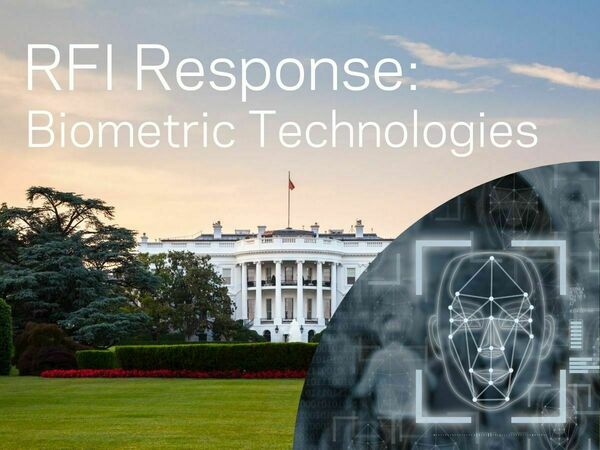RFI Response: Biometric Technologies
Publication Date: January 2022
Renieris and Lee responded to a request for input from the White House Office of Science and Technology Policy (OSTP) concerning the “Public and Private Sector Uses of Biometric Technologies.” The request for information, or RFI, was part of OSTP’s broader efforts to develop a Bill of Rights for an Automated Society. Respondents to the RFI were invited to provide information in any or all of six main areas. Renieris and Lee focused on two:
- Examples of how biometric technologies are currently used. In the United States, this includes tools for identity verification, contactless payments/checkout, employee monitoring/tracking, security access/control, and law enforcement applications, among others. Renieris and Lee also discussed how in China, “wearable devices such as ’smart’ helmets, ‘smart’ bands, and ‘smart’ uniforms are increasingly being used by organizations in an attempt to detect individuals’ movements and whereabouts, as well as changes in their emotional states.”
- Exhibited and potential harms of biometric technologies. Here, Renieris and Lee covered the ethics of biometric identity verification systems—including the implications for the people whose personal data is used to train the technology in the first place—along with the shaky scientific foundations for many biometric use cases, data privacy and cybersecurity concerns, the risks of government surveillance, and the financial incentives to create identity verification systems in situations where none may be needed.
